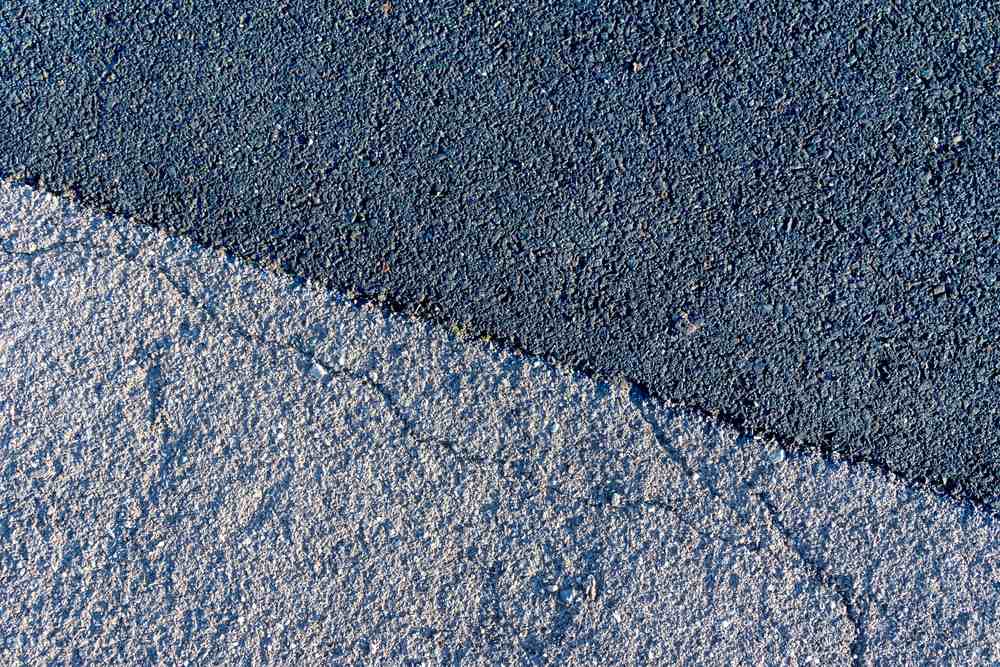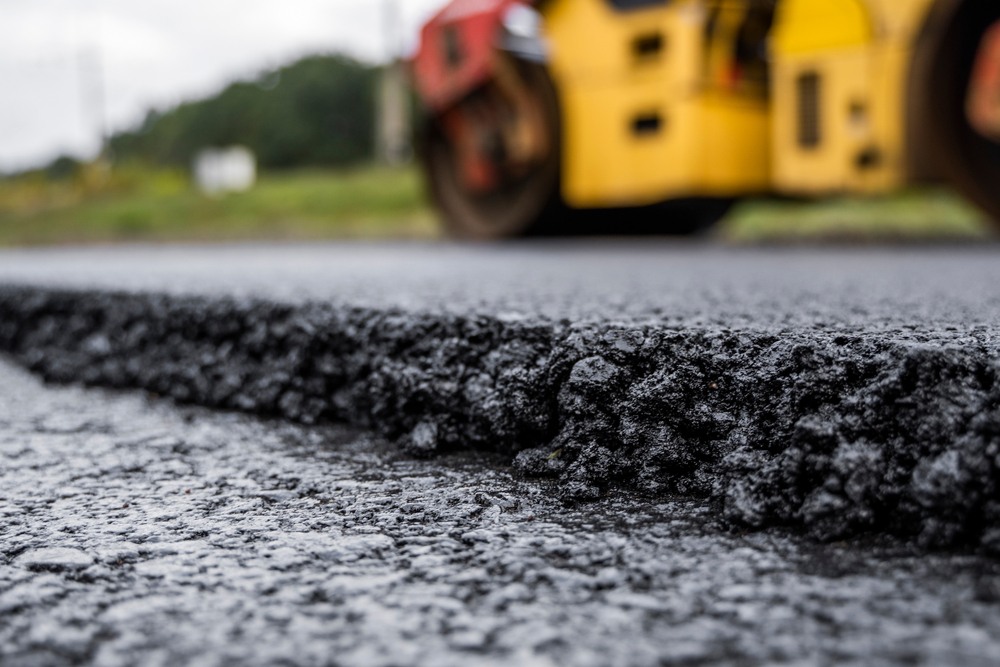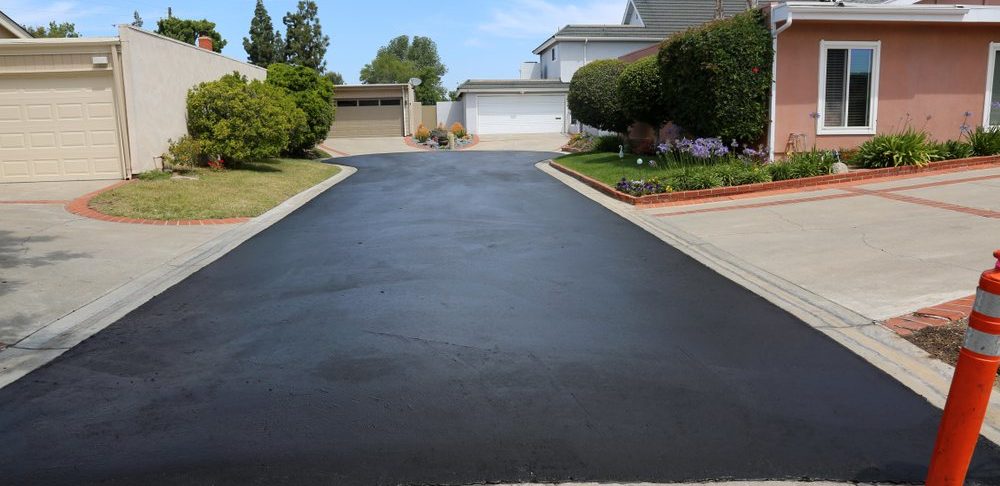When you need driveway paving to be done, hiring a professional is the best option to save you time and money on costly repairs, especially if something were to go wrong. However, before the paving process can begin, you’ll need to choose your material.
Most people believe asphalt and blacktop are the same thing. While they look similar, they’re quite different from one another. Youmight not think these differences are that important, but how they are made and their various uses are critical to a well-done paving job.
The Similarities Between Asphalt and Blacktop
Since blacktop is a specific type of asphalt, they share some similarities. The main similarities are that they are made with the same ingredient and take about the same time between set pouring and its use.
Same Ingredients
The main characteristic that blacktop and asphalt share is the material used to make them. Creating blacktop and asphalt requires a combination of bitumen and crushed stones. When combining them, they make that dark color that people associate with blacktop and asphalt.
Length of Time Between Pouring and Use
Another thing asphalt and blacktop have in common is the time between when you pour the mixture and when it’ll be dry enough for people to use.
Unlike concrete, which can take weeks to dry thoroughly, asphalt and blacktop are generally used 24 and 48 hours after being poured. Remember that the time between pouring and use can also vary depending on weather conditions and outdoor temperature.
Additionally, both of these driveway paving options can potentially increase the value of your home, which also affects its curb appeal.
The Differences Between Asphalt and Blacktop

There are two critical differences between asphalt and blacktop. These include how professionals make blacktop and asphalt and what people use them for:
How They Get Made
Even though asphalt and blacktop use the same materials, the difference in the manufacturing process is critical. Such as variations in the ratio of crushed stone and bitumen, or the temperature at which they are mixed.
For example, to make blacktop, you’ll need to use a substantial amount of crushed stone than when making asphalt. Thanks to the addition of more crushed rocks, the temperature at which professionals mix blacktop is also higher.
When mixing blacktop, the temperature needs to be around 300 degrees Fahrenheit. As for asphalt pavement, professionals only heat the mixture to approximately 250 degrees Fahrenheit since it uses less crushed rocks. The main similarity between making blacktop and asphalt is that they use the same amount of bitumen to bind the crushed rocks together.
Durability
When you consider the ratio difference between crushed stone ratios in asphalt and blacktop, the durability of both often comes into question. While asphalt is very sturdy, the considerable amount of crushed stones in blacktop makes it more durable over time than asphalt.
With maintenance, blacktop and asphalt driveways can last for 30 to 40 years, but blacktop will generally outlast asphalt by a few months or years. However, there are asphalt protection plans that you can put into place, if blacktop just isn’t for you.
What They’re Used For
Despite their similarities, the reasons people use asphalt and blacktop are different. Both are great, but they each have their own uses. The main uses people have for blacktop include:
- Playgrounds
- Roads
- Driveways
- Outdoor basketball courts
- Paved pathways in neighborhoods
- Parking lots
It is important to keep in mind that blacktop is much easier to repair than asphalt, thanks to its lightweight feature, which is why blacktop is ideal for paving. These uses can often damage over time, and being able to repair them frequently is essential. Overall, blacktop is a “friendlier” material to work with.
On the other hand, asphalt can withstand more weight than blacktop, which makes them better for installing driveways. It comes with a water-resistant quality that the blacktop doesn’t have. Here are the main things we use asphalt for:
- Freeways
- Highways
- Other major roadways
- Airport runaways
- Soundproofing
- Damp-proofing
- Cable coating
- Reservoir lining
- Pool lining
Since it can be used for more than roads and driveways, it’s a much more versatile paving material than blacktop. Here are some tips on how to care for a new asphalt driveway.
The Different Types
Another difference between asphalt and blacktop is that there are different grades of each paving material. While blacktop only has one grade, asphalt has four types that are ideal for specific projects.
Hot Mix Asphalt
Hot mix asphalt is the most similar to blacktop. It’s mixed at a higher temperature than traditional asphalt, like blacktop. It still can tolerate a heavier weight than a blacktop, but the creation process is almost identical.
Warm Mix Asphalt
Warm mix asphalt is created by simply mixing the asphalt at a lower temperature than 250 degrees Fahrenheit. It’s a good way to reduce fossil fuel emissions, for those environmentally conscious.
Quiet Asphalt
Quiet asphalt helps with soundproofing or reducing noise. This is what many professionals use when building in residential neighborhoods. It requires a higher mix of crushed stones, but is still cost-effective.
Porous Asphalt
Porous asphalt is ideal for roadways and other surfaces where you want water to be able to drain. The porous nature of this asphalt allows this to happen easier than blacktop and different kinds of asphalt.
Contact Richfield Blacktop for Your Asphalt and Blacktop Needs

Hiring the professionals at Richfield Blacktop is the best move you can make when it comes to all your driveway paving needs.
Whether you choose to go with blacktop or asphalt installation, or if you simply need our advice on which material is the best option, we’re here for all your paving needs. To find out more about our blacktop and asphalt services, contact Richfield Blacktop today.





